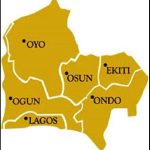
Artificial intelligence is not just a buzzword; it is a transformative force reshaping education worldwide. In developed countries, AI is revolutionising classrooms, personalising learning, automating administrative tasks, and bridging knowledge gaps. For Nigeria, where resource constraints, large class sizes, and disparities in access to quality education remain persistent challenges, AI offers a golden opportunity to level the playing field. However, with this potential comes a critical need to safeguard student privacy, ensuring that technology empowers without compromising trust.
Studying in the United States illuminated the transformative potential of AI in legal education. Platforms like LexisNexis, Westlaw, and ROSS Intelligence revolutionised my approach to legal research, tailoring search results to my specific case focus and academic needs. These tools didn’t just streamline the research process; they enhanced it by offering precise, on-point resources and analysis. For example, when faced with a complex legal issue, AI-powered systems would provide relevant precedents, statutes, and commentary, saving valuable time and ensuring thorough preparation. Writing and draughting, traditionally labour-intensive tasks, were made more efficient with tools like Grammarly and ChatGPT, which assisted in refining legal arguments and ensuring clarity in complex briefs. What stood out most was the emphasis on privacy and data security. These platforms adhered to stringent confidentiality standards, ensuring that sensitive case details were protected and used solely for educational or professional purposes. This integration of AI in legal practice inspired me to envision how similar advancements could reshape Nigeria’s legal education system, bridging gaps and empowering future lawyers.
Education in Nigeria is fraught with challenges: overcrowded classrooms, underpaid teachers, outdated curricula, and inequitable access to resources. Many students from underserved communities struggle to meet basic educational needs, let alone compete on a global stage. AI can change this narrative by democratising learning and making quality education accessible to all. AI-driven platforms can tailor instruction to individual students, recognising their strengths and weaknesses. For instance, an AI tool could identify a student’s struggle with algebra and recommend targeted exercises to address gaps. This personalised approach ensures no student is left behind, regardless of their location or socio-economic background. AI can also alleviate the burden on educators by automating repetitive tasks like grading and attendance tracking. This frees up teachers to focus on what they do best: teaching. Additionally, AI can provide insights into classroom performance, highlighting areas where interventions may be needed.
Through AI, Nigerian students can gain access to cutting-edge educational materials, even in remote areas. Platforms like Khan Academy, augmented by AI, can provide video lessons, interactive exercises, and quizzes in multiple languages. Students can learn at their own pace, turning smartphones into powerful learning tools. Nigeria’s linguistic diversity is both a strength and a challenge. AI-powered translation tools can ensure students receive instruction in their native languages, fostering better understanding and engagement. AI can analyse patterns in student performance, identifying those at risk of dropping out or failing. Early intervention strategies, informed by predictive analytics, can help students stay on track, improving overall academic outcomes.
In my quest to bridge the gap between technology and education, I co-founded Dtechlawguide, a non-governmental organisation committed to fostering innovation among tech startups in Africa. Recognising the critical role AI can play in transforming education, our organisation actively supports schools by introducing AI-powered learning tools and providing training for teachers and students. Through our initiatives, Dtechlawguide has partnered with schools in underserved areas, equipping them with resources to integrate AI into their teaching methodologies. For instance, we’ve introduced adaptive learning platforms that personalise instruction based on students’ individual needs. These tools have helped improve literacy and numeracy skills in schools where traditional teaching methods often fall short. Moreover, we work closely with African tech startups, mentoring entrepreneurs to develop solutions tailored to local challenges. By supporting these innovators, we’re not only enhancing education but also driving economic growth and technological advancement across the continent. Our workshops on data privacy and ethical AI use ensure that educators, students, and developers understand the importance of safeguarding personal information. By promoting a culture of accountability, Dtechlawguide aims to build trust in technology and ensure its ethical application in education and beyond.
Countries like Estonia and India are leading the way in AI-powered education. Estonia integrates AI into classrooms to personalise learning, while India uses AI platforms to reach rural communities, significantly improving literacy rates. Nigeria has the potential to achieve similar success. As Nigeria integrates AI into its education system, protecting student privacy must remain a top priority. The potential misuse of data, whether through unauthorised access or unethical surveillance, poses a significant threat. Nigerian institutions must implement comprehensive policies that govern the collection, storage, and use of student data. These policies should align with international standards like the General Data Protection Regulation and reflect the unique cultural and technological context of Nigeria. AI systems should be designed to collect only the data necessary for their intended purpose. This principle of data minimisation reduces the risk of breaches and ensures that personal information is not exploited. Institutions must be transparent about how data is collected and used. Regular audits and independent assessments can ensure compliance with privacy standards. Additionally, students and parents should have control over their data, with the ability to opt out of data collection if desired. Empowering students and educators with knowledge about privacy and ethical AI use is crucial. Workshops and training sessions can demystify AI, fostering trust and accountability.
With mobile penetration in Nigeria at nearly 50%, the widespread availability of mobile devices provides a unique opportunity to address the country’s educational challenges. AI-powered apps can serve as powerful tools for bringing learning to students in the most remote and underserved regions, bypassing traditional barriers such as inadequate infrastructure, lack of qualified teachers, and limited access to educational materials. These apps can transform smartphones and basic tablets into virtual classrooms. For instance, platforms like Google Classroom, Khan Academy, or even localised AI-driven apps tailored to the Nigerian context can deliver quality educational content directly to students’ devices. These tools can provide video lessons, interactive exercises, and quizzes, enabling students to learn at their own pace and on their schedules, even without consistent access to physical schools. Imagine a Nigeria where every student, from the bustling streets of Lagos to the remote villages in the north, has access to world-class education right at their fingertips. With AI-driven learning platforms, this vision is not only possible but achievable.
The growing use of mobile phones in Nigeria provides a ready infrastructure for implementing these AI-driven solutions. With continued investment in technology and collaboration between policymakers, educators, and tech companies, AI-powered mobile apps can significantly contribute to bridging the educational divide. This technology has the potential to ensure that every Nigerian child—whether in a city or a rural community—has the opportunity to access quality education and be equipped for a successful future.
Imagine Nigeria, where every child, regardless of their background, has access to a transformative, world-class education—a nation where the bustling streets of Lagos and the serene villages of Adamawa are united by the promise of opportunity and knowledge. This vision is no longer a distant dream; it is an achievable reality, powered by the potential of artificial intelligence (AI). However, realising this promise requires bold and responsible action today.
AI has the capacity to revolutionise education, bridging the gaps that have long hindered progress. It can provide personalised learning experiences, adapt to the needs of diverse learners, and ensure that no child is left behind, even in the most underserved communities. By leveraging AI, we can offer resources like interactive digital textbooks, real-time feedback for students, and training tools for teachers, empowering educators and enhancing the learning experience for students across Nigeria.
Yet, the path to this brighter future is not without challenges. To harness AI responsibly, we must address critical issues such as equitable access to technology, data privacy, and the digital divide that separates urban centres from rural areas. This will require investments in infrastructure, partnerships between the public and private sectors, and policies that ensure ethical AI deployment in education.
The time to act is now. We must seize this moment to build a future where every Nigerian child has the tools to reach their full potential. Together, we can unlock an education system that not only transforms individual lives but also drives national progress, fostering innovation, economic growth, and a more equitable society. The dream of universal, quality education is within our grasp; let us rise to the challenge and make it a reality.
•Ijaiya is an information security analyst based in Indiana, USA



